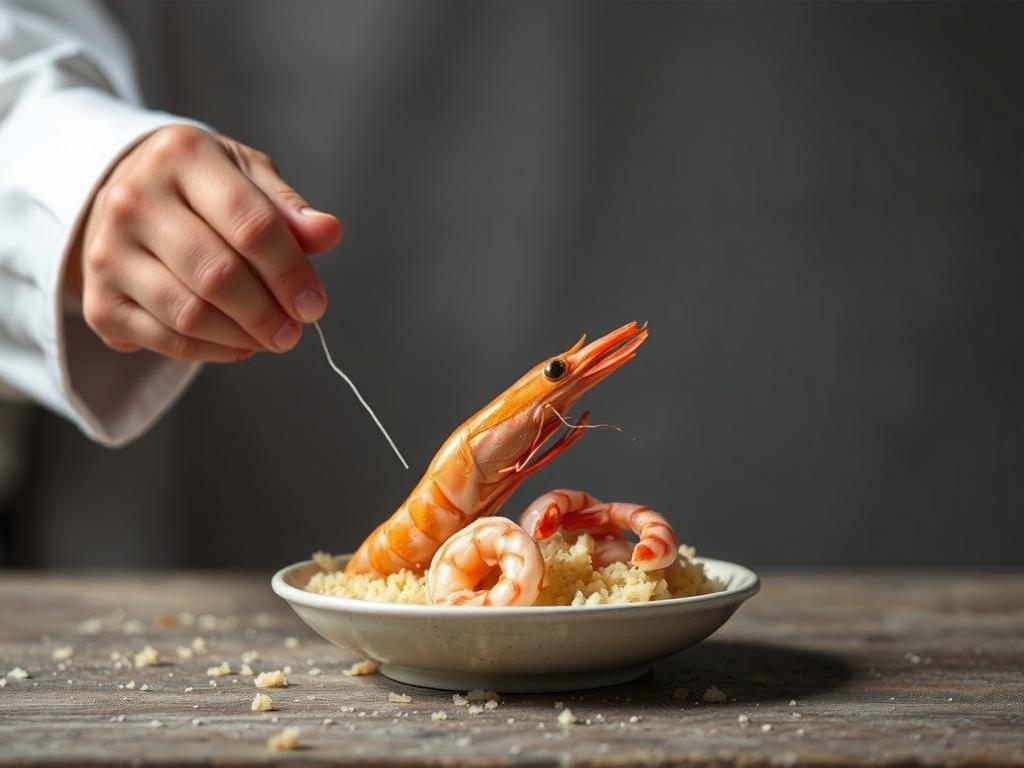Are you wondering, can Muslims eat shrimp? It’s a surprisingly common question with no single, straightforward answer. Different perspectives exist within the Islamic faith, making it crucial to understand the nuances. Roughly 25% of global seafood consumption is shrimp, making this a practical question for many Muslims. This guide dives into the topic, offering insights rooted in Quranic guidance, Sunnah practices, and Islamic ethics to help you form your own informed decision. We’ll explore five different Islamic rulings, clarifying the debate around shrimp consumption.
Introduction to Shrimp Consumption in Islam
The permissibility of seafood, including shrimp, isn’t universally agreed upon among Muslims. This creates confusion, and rightfully so! To truly understand can Muslims eat shrimp, we need to examine the various interpretations of Islamic texts and the rulings of respected scholars. This exploration will give you a detailed and balanced perspective, solidifying your understanding within the framework of Islamic principles. The question isn’t simply ‘yes’ or ‘no’ – it’s about understanding why different opinions exist.
Key Teachings on Seafood in Islam
Islamic teachings provide guidelines for permissible (halal) and impermissible (haram) foods. Grasping these principles is essential when contemplating, “can Muslims eat shrimp?”. Let’s explore the key areas.
1. Quranic Permissibility of Sea Creatures
The Quran generally permits the consumption of seafood without detailing specific types. Surah Al-Ma’idah (5:96) explicitly states: “Lawful to you is game from the sea and its food as provision for yourselves.” This verse forms a foundational basis for the permissibility of most seafood.
- Practical Steps: Consume seafood with the understanding of this general permission, unless there’s a clear indication from the Sunnah or scholarly consensus it’s prohibited.
- Actionable Advice: If you’re ever uncertain about a specific type of seafood, consult your local Imam or a qualified Islamic scholar for guidance.
2. Hanfi School’s Stance on Shrimp
The Hanfi school of thought, one of the four major Sunni schools, is notably more restrictive. It generally permits the consumption of fish, specifically fish with scales, and explicitly prohibits creatures like shrimp, crabs, and lobsters. This is based on specific interpretations of Hadith regarding permissible sea creatures.
- Practical Steps: If you adhere to the Hanfi Madhab, it’s generally recommended to abstain from consuming shrimp.
- Actionable Advice: Regularly review updated fatwas (religious rulings) from credible Hanfi scholars within your region. These rulings can provide contemporary clarification.
3. Other Schools’ Views: Maliki, Shafi’i, and Hanbali
The Maliki, Shafi’i, and Hanbali schools generally permit the consumption of all types of seafood, including shrimp, based on the comprehensive permissibility outlined in Surah Al-Ma’idah 5:96. They interpret the Quranic verse to imply all sea creatures are halal unless specifically proven otherwise.
- Practical Steps: Can Muslims eat shrimp according to these schools? Yes, it is considered halal.
- Actionable Advice: When consuming shrimp, ensure it is harvested according to hygienic standards and, ideally, from sustainable sources, aligning with broader Islamic ethics of responsible consumption.
4. Istihalah (Transformation) & Seafood
The concept of Istihalah, or transformation, suggests that if a haram (forbidden) substance undergoes a complete transformation into a halal (permissible) one, it may become permissible. This is a complex topic, and its relevance to shrimp is debated.
- Practical Steps: This principle is less directly applicable to shrimp itself, but often discussed regarding processed foods containing shrimp-derived ingredients.
- Actionable Advice: Understanding Istihalah requires a detailed grasp of the transformation process, often necessitating expert analysis by Islamic scholars specializing in food science.
5. Considerations from Islamic Ethics: Moderation & Wellbeing.
Islam emphasizes moderation in all aspects of life, including dietary habits. Eating should be done for sustenance and wellbeing, not excess or extravagance. Consuming any food, including shrimp, should be mindful of one’s health and avoid waste.
- Practical Steps: Practice mindful eating and avoid overconsumption.
- Actionable Advice: Be conscious of any potential allergies or health conditions you might have before consuming shrimp. Prioritize healthy preparation methods like grilling or steaming instead of frying.
Common Misconceptions About Eating Shrimp
Several misconceptions frequently influence the debate: “can Muslims eat shrimp?”. It’s important to address these.
Myth: All seafood is universally permissible in Islam.
- Reality: The permissibility is dependent on the Islamic school of thought (Madhab) a person follows. Different schools have distinct rulings.
Myth: Shrimp is considered Makrooh (discouraged) by most scholars.
- Reality: While some scholars may discourage its consumption due to precautionary principles, the majority of schools of thought generally permit its consumption.
Myth: Eating shrimp is a modern innovation not addressed in classical Islamic texts.
- Reality: Shrimp wasn’t necessarily unknown historically. The general permissibility of seafood in the Quran provides a foundation for its acceptance within many Islamic legal opinions. Early scholars extended this ruling to include creatures similar to fish.
Conclusion: Shrimp Consumption Explained
So, can Muslims eat shrimp? The answer isn’t a simple yes or no. While the Quran broadly permits seafood, diverse Islamic schools of thought offer differing opinions. Understanding these different rulings—from the Hanfi restriction to the permissibility within the Maliki, Shafi’i, and Hanbali schools—empowers you to align your dietary choices with your beliefs and conscience. Ultimately, seeking knowledge and consulting with qualified Islamic scholars remains the best approach to navigating this topic. If you’re still unsure, consider erring on the side of caution and choosing alternatives.














